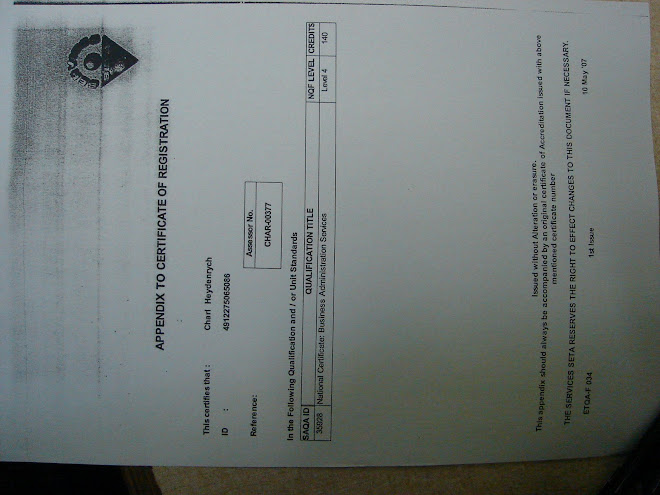Category: Top Stories Date Added: 13 January 2010 LINDA ENSOR
Political Correspondent
NEW legislation to tighten up the regulation of estate agents is on the agenda of the Department of Trade and Industry this year.
A draft policy for the industry will be released to stakeholders later this month for them to make input.
The industry is regulated by the Estate Agencies Affairs Act of 1976, which trade and industry deputy director-general Zodwa Ntuli said was “very backward” and out of date.
In particular, the act did not deal effectively with unscrupulous estate agents who swindled clients out of money and then simply moved on and opened up a new business under a different name, he said.
If estate agents were caught, they could only be charged criminally and even then the fines were “so ridiculously” low that they would not deter anyone as crooks could simply budget for the penalty, which is a fine not exceeding R5000 or imprisonment for a period not exceeding five years, or both.
Ntuli also said it was unsatisfactory that the fidelity fund maintained by the Estate Agents Affairs Board to protect consumers — to which all registered estate agents had to contribute — was sometimes used to compensate the clients of fraudulent, unregistered agents who had not contributed to it.
The current act did not address this anomaly.
“We need to create a balance between requiring registered members to contribute to the fund while at the same time empowering the authorities to deal severely with those who are not registered, as they are the ones who are a liability to the industry,” Ntuli said.
The many cracks and loopholes in the system had to be tightened up and the fragmentation of the regulatory regime addressed.
Some aspects of the act could be more appropriately administered by the new Consumer Protection Act.
The lines of responsibility for the training and accreditation of estate agents were also a bit blurred between the trade and industry and housing departments and the Services Sector Education and Training Authority. “What happens now is that you have forum shopping,” Ntuli said. “When things are not clear, people can choose which department to go to, to suit their own purposes. This makes the management and enforcement of this industry a bit difficult.”








